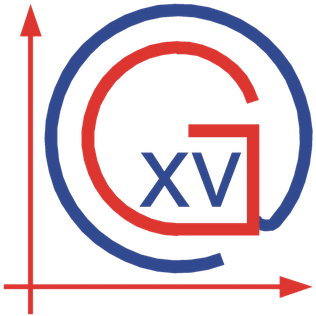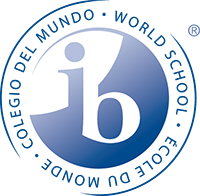The IB is among the most challenging and demanding pre-university programs, due to the numerous subjects and high standards that are parts of it. Not to mention the sheer amount of tests and exams. We all know that infamous pre-exam feeling: a mix of nerves, dread, and (hopefully) some confidence, assuming you know the material. However, by developing appropriate studying habits we can try to diminish those nervous and dreadful thoughts. In this article, we will cover various basic study habits, review command terms, and go over some subject-specific tips.
Basic Study Habits
Each subject has its own demands and requirements, presenting a complicated maze for each student to navigate. It’s all a matter of seeing what works and what doesn’t, but there are some essential habits that can be applied to almost any subject. Let’s break it down:
Prioritization
You’ve probably heard this term mentioned at least once by nearly every teacher ever. It’s among the most important aspects to a successful and efficient study routine that’ll help you with everything else, school-related or not. Think of which subjects are more difficult for you, which activities take the most time, or how important a certain assignment is. Breaking it down by…
- Time
- Assessment weight
- Perceived difficulty
…will help immensely. Evaluate everything with these criteria in mind, and see what works for you. Some people may prefer starting with small and short tasks to get themselves in the “academic spirit”, while others may want to get rid of the most difficult and time-consuming tasks first.
Consistency
Studying regularly and consistently will save you a lot of valuable time in the long run. Before leaving school, take a picture of your notes and read them through as you go home by tram or some other means of transport. A quick 10-15 minute revision after each lesson can allow the material to stick much better, and it’ll prevent the student-favorite “studying the night before the exam”. Immediately observe what you don’t understand and ask your teacher for clarification next class.
Personalization
As simple as it may sound, find the best study methods that work for you. If it helps to read everything over and over until it clicks, do that. If it’s better to record yourself and speak like you’re giving a lecture, then do that. Combine methods effectively and vary them from subject to subject. Always focus on understanding the content regardless of the methods you use.
Command Terms
Command terms are part of every IB question, and are a way to reflect your different levels of understanding and achievement. Let’s go through them and what they entail.
Level 1-2
State
- A key fact, idea, or piece of information
- Elaboration not needed
Define
- Just a simple definition
- If your definition features unknown words or another key concept, include an additional definition of said concept/word in parentheses
Level 3-4
Note: For higher levels after 1-2, always try to define your concept/term/process before doing anything else!
Describe
- This may be for higher levels of achievement as well
- Generally requires mentioning the key features or characteristics of something
Outline
- Generally for a process
- Brief summary/overview of the steps of a process
- Main points/features of a concept
Level 5-6
Explain
- Detailed account of something
Questions to consider: How and why does it work? What causes it? Who or what is involved?
Similar to describing, but with more detail and focus on a bigger picture (not just key traits of something) .
Compare/contrast
- Highlight similarities and differences
- Use sentences effectively!
Example: Topic A features …, while topic B does not.
Use sentences to establish and elaborate from there.
Level 7-8
Discuss
- Analysis of a topic
- Argue and justify your claims (include examples!)
- Focus on differing perspectives
Justify
- Provide evidence and reasoning for something
Questions to consider: Why is this true? Why is this better/worse compared to something else? What makes it good/bad? Remember to make good use of examples when applicableand use sentences effectively to save time, showing off your language proficiency. If you’re in doubt, it is alwaysbetter to write more than to write less.
Subject-specific Study Tips
Every subject in the IB is unique, and so are the approaches to learning and studying the material. As always, devote more time to subjects with a heavier workload (like physics or biology) or with a higher perceived difficulty.
Main languages (Croatian, English)
Reading the assigned books/literary works is the most obvious thing you will hear, but it stands to be repeated. Use materials like SparkNotes to your advantage; add on to your already existing notes from class using these resources. Identify common themes and potential related topics of discussion (including relevant quotes) before writing. You’re essentially trying to predict the analysis questions, which will save you time later. Frantically looking through your book for one specific quote is never good.
For annotating, use sticky notes in your books and identify which chapters/sections have which major plot points. This’llmake it easier to find certain moments with specific quotes you may need. Additionally, mark where important characters make their first appearances.
Most importantly, keep reading journals, in which you should take notes about the book you’re reading. Write about themes in the novel, background context, the characters, what happens in every chapter, the tone, the atmosphere, etc. These will help you when you are studying for writing the literary analysis or studying for your final exams.
Second language (German, French)
Second languages are a great opportunity to learn something truly useful (and they’re a great way to show off too). If you really feel dedicated to learning the language, immerse yourself in it as much as possible. Use subtitles for your favorite shows, listen to audiobooks/podcasts on the way to school, and read books.
Grammar will be the biggest obstacle for languages like German or French, so try applying any new grammar to sentences andwords you already know. In addition, of course, read aloud whenever you’re studying at home.
Chemistry
Chemistry will be a combination of math and some theory. Repeat practice problems as much as possible. Don’t rely too much on the textbook; focus more on your notes and practice tests from class. However, it is still important you understand the theory behind a concept, and why something is the way that it is. It might be helpful to make notes based on your textbook and add any addition information you do not understand. Going through your notes and solving practice problems would help you ace your exams and understand the material.
Additionally, learn to work under a time limit to be able to solve tasks quickly. This will allow you to breeze through the easier tasks in order to leave room for at least attempting harder or unfamiliarones. Set yourself a timer, and practice away.
Biology
Out of all the sciences, biology is the one focused mostly on memorization. Of course, understanding how everything works is essential, but there are many terms and seemingly unconnected concepts that require reading it over, over, and over again. If you can recite your notebook like you’re giving a lecture, you’re on the right track.
Physics
Physics is hailed as one of the harder subjects in the IB, and relying on notes is the way to go. Textbooks may offer detailed, but often unnecessary or complicated explanations. Like with chemistry, understand examples from class and how formulas are derived (deriving formulas with proper explanations can be higher level questions!).
Homework tasks are also crucial, and make sure to understand them well. Divide theory and such practical/calculation tasks separately. Ideally, revise the theory first to get a solid foundation for what you will be calculating.
While unrelated to studying, try to participate as much as possible in class to get pluses that may help your grade if necessary later on. Physics may take the most time of all subjects, so plan accordingly and go step by step.
Math (standard or extended)
Math doesn’t require the same form of studying as other subjects, and it is mostly based on practice. Practice tasks from class and from the textbook. When writing the actual tests, always attempt to solve tasks, even if you just write down a formula. This can get you at least some points!
Humanities (geography, history)
These subjects rely slightly more on memorization, though you still have to understand the core concepts. Try using methods to distinguish the loads of information you’ll be receiving; do this with highlighters or different pen colors.
For history, make a general outline on flashcards and explain the event specifics to yourself like a story. Always revise starting from basic information (name of event, location/time/date, people involved, etc.) towards the more detail-focused information. Make use of your textbooks: Although you don’t have to know every detail, the more times you reread your textbook, the more you’ll understand the material. These same principles apply for geography.
Conclusion
The IB can be heavily demanding and stressful, but with proper study habits and the offered tips, perhaps we can ease these feelings. Take time to reflect on how you can improve and remember that one poor grade is not the end of the world. Focus on understanding rather than just memorizing things and then immediately forgetting them. These skills of prioritization, time-management and more will help immensely later on. In addition, don’t forget the timeless advice of getting enough sleep before your test or exam. It helps much more than you think. Good luck and happy studying and test taking!





